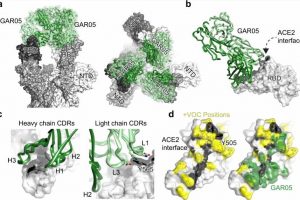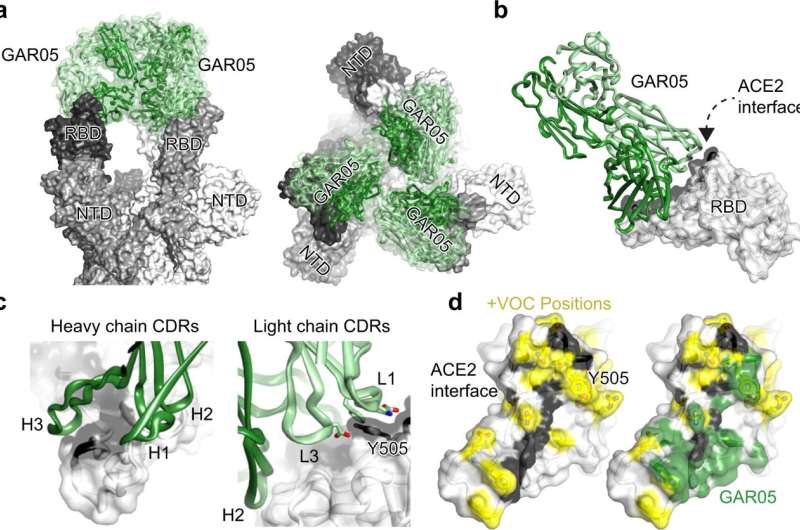A new class of antibodies against COVID-19 is being put to the test


A new class of SARS-CoV-2 antibodies has been shown to neutralize multiple variants of the virus, providing hope for a better antiviral medication to prevent and treat COVID-19 symptoms in at-risk individuals, according to a new study from the Garvan Institute of Medical Research.
Monoclonal antibodies are lab-made copies of proteins, used before or after infection to mimic and boost the body’s own immune response to a virus, particularly for people with chronic illness or immunodeficiency. Unlike the five previously known classes of SARS-CoV-2 antibodies, which have limited effectiveness as it wanes with new variants, these class 6 antibodies work by attaching to a partially hidden part of the virus’ spike protein that would be difficult for it to mutate.
The research, published in the journal Nature Communications, shows that the class 6 antibodies effectively neutralize SARS-CoV-2 variants of concern, including delta and omicron strains.
“This is a new mechanism of action we’re seeing with these class 6 antibodies,” says Professor Daniel Christ, Director of the Antibody Therapeutics Lab at Garvan and corresponding author of the paper.
“Our hypothesis is that they’re so effective because the area we’re targeting is close to the center of the spike’s structure. When the antibody attaches there, it distorts the spike and rips it apart. It would be very difficult for the virus to adapt to that,” he says.
The researchers are currently testing the antibodies against more recent strains of SARS-CoV-2, such as XBB.1.5 and XBF. If results are promising, they will form the basis for phase 1 clinical trials in 12 to 18 months.
“Almost all commercially available antibodies for COVID-19 don’t work well anymore. Most are class 1 or 2, which refers to the fact that they bind to the most obvious spot on the spike protein—the ACE2 receptor binding site. They have downsides, including failure against new variants as they evolve,” says Dr. Jake Henry, Research Assistant at Garvan and co-first author of the paper.
“We’re delighted our research could lead to new antiviral therapy providing reliable ‘passive immunity’ to at-risk individuals.”
New discovery method could fast-track development of antibody therapies for other viral illnesses
The new antibodies were initially discovered in small numbers in samples from patients in Sydney who were infected with the original Wuhan strain of COVID-19.
The Garvan researchers, in collaboration with clinical partners and a multi-disciplinary team across other research institutes, used an innovative approach combining a series of cutting-edge mapping and engineering techniques, to study the blood samples and control the interaction between these therapeutic antibodies and the pathogens they target.
The team sorted and isolated B cells, identifying receptors that would bind in an unusual zone of the spike protein. They analyzed the molecular structure of the antibodies produced by these B cells—important because it is their precise shape that determines where, and how, they will react against a viral invader.
“The exciting thing is that we describe a method we can use in the future to apply to other viruses—like flu or coronaviruses. This is a very quick way of identifying and isolating rare antibodies from recovering patients which leads to more effective treatment,” says Dr. Henry.
More information:
Romain Rouet et al, Broadly neutralizing SARS-CoV-2 antibodies through epitope-based selection from convalescent patients, Nature Communications (2023). DOI: 10.1038/s41467-023-36295-5
Journal information:
Nature Communications
Source: Read Full Article